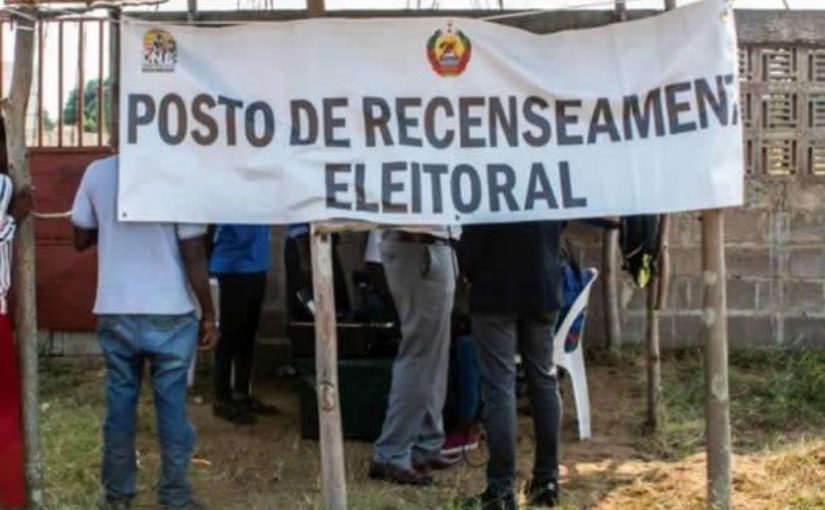Mozambique: Mondlane's immunity may be lifted at request of the Council of State - lawyers
Mozambique: Challenges to voter enrolment pocess due to more oversight – expert

File photo: CIP
The plethora of challenges concerning alleged illicit occurrences in the registration of voters for Mozambique’s municipal elections is largely due to greater oversight by political parties and civil society, because such anomalies “are not new,” according to Guilherme Mbilana, an electoral law expert.
“I think they [opposition parties and civil society] have awakened to the interest of inspecting voter registration … placing their inspectors at the registration posts,” Mbilana told Lusa, adding that this time around, the registration of voters has been “watched in all its amplitude” while in the past the concern was solely with the voting, counting and tabulation of votes.
The political parties “only placed delegates of candidacy to watch and accompany the voting, to accompany the counting of votes; they were not concerned with the phase of electoral registration,” he noted. “This is the novelty.”
Mbilana, a lecturer and specialist in electoral law, also pointed to the role of social media in the presentation of evidence of offences relating to voter registration as another element that contributed to the “indignation” generated around some incidents.
He noted that there is evidence that the process was marked by the registration of voters after hours, in unauthorised locations, by the disappearance and constant breakdown of voter registration equipment, the discovery of voter cards in the hands of registration agents, and deliberate actions to harm certain groups of voters and favour others.
Manwhile, many voters were left unregistered, due to flooding at posts and equipment malfunctions.
“There is evidence in the images that were circulating on social networks [and] no one and at no time has said that none of this was true,” he stressed.
Mbilana noted that the opposition had the “perception that there was a surgical selection” of the places where he believes there is a larger electorate for the deliberate creation of difficulties in voter registration.
The opposition parties’ complaints, he said, stemmed from the fact that anomalies in the voter registration process were mostly reported in districts with municipalities that are not run by the governing Frelimo party, which has been in power at national level since the country’s independence from Portugal.
Mbilana questioned the reliability of the number of voters that the electoral bodies say have been registered – which, according to preliminary data, point to more than 8 million – since many have been disenfranchised.
Mbilana noted that while opposition political parties have improved their ability to oversee the electoral process, they continue to demonstrate gaps in complying with the law to see their complaints addressed by the relevant bodies.
“What is happening in this country is that people are not knowing how to identify the type of procedure and the entity in which to proceed, in terms of measures of annulment” of electoral acts, he stressed.
The opposition parties express their “indignation in public and in conversations” but do not follow the administrative and legal roadmap that they should in order to contest what they see as abuses.
Mbilana pointed to the obligation to make a written complaint at the voter registration post, then lodge an appeal with the electoral administration bodies and local courts, to the national entities, and finally to the Constitutional Council as mandatory routes of “electoral litigation” in this process.
“The Constitutional Council is silent, as long as no appeal reaches it,” so far as ruling on crimes during registration, including the annulment of the voter registration process, because “the principle of prior impugnation” works, he noted – a principle according to which there must be an initial complaint for the matter to then be appealable.
On Tuesday, the main opposition party, Renamo, demanded the annulment of the voter registration held between 20 April and 3 June, accusing Frelimo of having manipulated the operation.
In the face of what it says are serious irregularities, Renamo is demanding an audit of the voter register and a new enrolment procedure that is impartial and free of manipulation and vices “in order to guarantee free, fair and transparent elections,” a Renamo spokesman, Jose Manteigas, said at a news conference in Maputo.













Leave a Reply
Be the First to Comment!
You must be logged in to post a comment.
You must be logged in to post a comment.